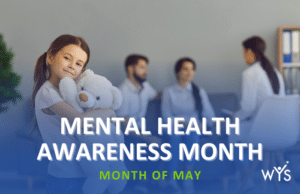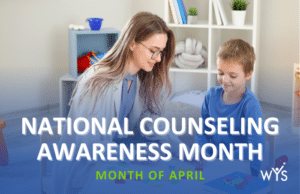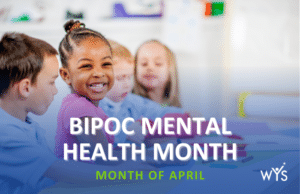
Self esteem plays a crucial role in youth mental health and overall well being. Boost Your Self Esteem Month is observed in February and gives us the opportunity to recognize just how vital positive self esteem can be. For youth, navigating challenges like school, relationships, and social media can significantly influence how they perceive themselves. Recognizing this connection is key to building resilience and supporting mental wellness.
The Connection Between Self-Esteem and Youth Mental Health
Research consistently shows a strong link between self-esteem and mental health. According to a study published in Frontiers in Psychology, low self-esteem is a significant risk factor for mental health challenges, including depression and anxiety. Conversely, high self-esteem helps strengthen emotional resilience and supports overall well-being.
External pressures, such as academic expectations and peer comparisons, can cause self-esteem to fluctuate. A report by the American Psychological Association revealed that 45% of teens reported experiencing ongoing stress related to academic performance, which can negatively influence their self-worth. Addressing these pressures head on and preserving self-esteem is critical for youth mental health and emotional development.
Effective Ways to Support Youth Self-Esteem
If you find that you or someone you know is experiencing low self esteem,consider incorporating these strategies to build confidence and support mental health:
- Focus on Strengths: Encourage youth to identify and embrace their unique talents and abilities to combat negative thoughts and foster a sense of accomplishment.
- Set Realistic Goals: Help youth set achievable goals and celebrate their progress. Avoiding unrealistic expectations can prevent feelings of failure and build a sense of capability.
- Practice Positive Self-Talk: Teach youth to replace negative self-criticism with affirmations that reinforce their worth and build self-confidence.
- Nurture Supportive Relationships:Encourage meaningful interactions with friends, family, and mentors to foster validation, encouragement, and a sense of belonging.
- Be Mindful of Diet and Exercise: Incorporate balanced meals and daily physical activity to enhance both mental and physical well-being.
- Limit Social Media Influence: Help youth practice mindful social media use to limit exposure to negative comparisons and unrealistic portrayals. Research reveals that excessive screen time increases the risk of depression, anxiety, and lower self-esteem.
Building Resilience Through Self-Esteem
Incorporating these self-esteem boosters into daily routines can significantly enhance youth mental health and foster resilience. By providing the right support and strategies, youth can develop a positive self-image and strengthen their emotional well-being.
This February, during Boost Your Self-Esteem Month, let’s empower the younger generation to recognize their strengths, embrace their unique qualities, and build a brighter future.
Access Mental Health Resources and Support
If you or someone you know is facing challenges with self-esteem or mental health, we are here to help. Our wide range of resources and programs are designed to meet the specific needs of youth and provide meaningful support.
Click here to get connected to support that fits your precise needs.
If your child or a young loved one is struggling with a mental health concern, we encourage you to reach out to a mental health professional or to contact an Access Coordinator at Western Youth Services by sending an email to gethelp@westernyouthservices.org or by calling us toll-free at 888-312-0406.
Find Orange County, state, and national resources on our site here: https://www.westernyouthservices.org/resources/.






